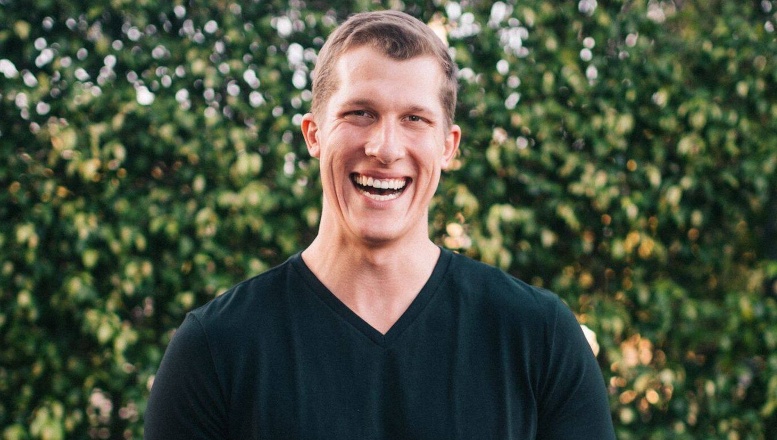Michigan-based Heartland Corporate Holdings LLC (“Heartland Industries”) has canceled plans to grow 5,500 acres of fiber hemp this year after potential investors backed out, citing reservations over the company’s strategy.
Heartland confirmed that it failed to make payments April 1 under farm lease contracts with 20 Michigan growers, the result of investor reluctance over the vertically integrated business model Heartland had embraced, said Jesse Henry, the company’s CEO.
Henry said while the investors were “willing to finance manufacturing operations and client relationships, and the sales and marketing side of the business,” they were not inclined to finance agricultural operations, which bring more risk. That left Heartland in a “compromised position,” as Henry put it.
Farmers left scrambling
Heartland, which was started in 2020, has said its goal is to develop hemp-based materials as additives for polymers, mainly for the plastics and rubber sectors, to capitalize on a shift by producers and compounders of petroleum-based materials into more sustainable outputs.
The withdrawal of the investors on Wednesday, March 30, forced Heartland to cancel its hemp farming plans one day before the farmer payments were due.
Michigan farmers who spoke to HempToday said they were to be paid $250 per acre under the contracts, through which they were to lease their fields and farm the hemp crops. The farmers said they are now scrambling to procure seed and fertilizer in a short time window so they can plant other crops this year.
Henry said Heartland intends to support the farmers in that process: “We need to do this in a way that doesn’t make the farmers lose a bunch of money,” the CEO said, and “make sure these farmers are able to get seed in the ground.”
Expansive vision
Ann Arbor-based Heartland has spun an expansive vision through a flurry of press releases and interviews in its efforts to raise development financing.
A March 29 announcement from the company describing a new partnership with Dallas-based Climate Commodities International (CCI) referred to Heartland as “one of the United States’ premier producers of industrial hemp additives,” and said it “is creating the infrastructure to help manufacturers lower their carbon footprint and usher in the sustainable future that their stakeholders need and deserve.”
The joint statement from Heartland and CCI said the companies were “creatively applying their combined expertise to develop a new type of asset class that clients, banks, and investors can safely participate in.” CCI was described as “the premier trading, logistics, transportation, and commercialization services firm enabling the development of the climate economy.”
Strategic shift
That followed a partnership agreement with Denver-based cultivation seed broker International Hemp that was announced in a press release March 23, which said “the two organizations have created a partnership to develop multiple supply chains over the next few years that will use domestically produced hemp to support American farming and American manufacturing.”
Henry told HempToday in a February interview that Heartland would “work alongside farmers in states across America who see industrial hemp making a huge, long-term impact on American agriculture.”
“Through working with farmers in Michigan, we have dialed in the standard operating procedures necessary to scale industrial hemp farming,” Henry also said in the interview.
But the company has now abandoned agriculture as part of its strategy, according to Henry, who told HempToday this week that now “Heartland’s corporate strategy is focusing on product/market fit, instead of vertical integration. This means doubling down on engineering hemp fibers as additives for plastics.”
Holland plant is nixed
Heartland announced in April 2021 that it had secured an undisclosed amount of financing from Bank of Ann Arbor to build a hemp fiber processing factory in Holland, Michigan, and also indicated plans to build its main processing operations in Detroit.
The company said at the time that the Holland facility would eventually be able to process 1.5 million pounds of fiber hemp per year sourced from Michigan farmers. Henry said plans to build that factory have been abandoned but that the company still intends to develop the Detroit facility, which it has said could turn out as much as 300 million pounds of industrial hemp annually.
Heartland so far has set up two hammer mills from Colorado Mill Equipment in a rented warehouse near Mendon, Michigan, where several local landowner-growers had signed farm lease contracts. The company has agricultural equipment in its portfolio worth $500,000, according to Henry.
He said Heartland will grow 100-150 acres of hemp this year for studies into soil health and carbon sequestration to meet obligations under a $360,000 research grant the company received last December from the U.S. Department of Agriculture.
But any contracts to supply processed hemp will be sourced from other producers through purchases on the spot market, Henry said.
Who runs Heartland
In addition to Henry, Heartland Industries is led by Tim Almond, chairman; the two are co-founders. Henry was previously a speaker under management guru and “life coach” Tony Robbins. Almond is a tech entrepreneur who was previously chief of staff at Intersection Capital, an investment bank in San Diego. The two are also identified as managing partners in Cloud Nine Capital, Scottsdale, Arizona, described on its website as a developer and investment firm focused on the commercialization of supply-chain technology.
According to Heartland’s website and public sources, other executives in the company are Eric Austermann, Chief Sustainability Officer, who was previously head of sustainability at St. Petersburg, Florida-based Jabil Manufacturing; and John Ely, Chief Marketing Officer, who has held marketing positions at AMETEK, a maker of electronic and electromechanical devices based in Berwyn, Pennsylvania; UNIPOWER, a power solutions producer based in Coral Springs, Florida; and Crane Plastics, Columbus, Ohio.
The company also has an extensive roster of advisers across a number of industries.

